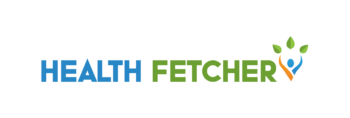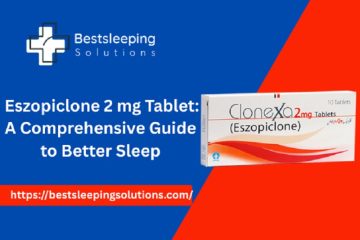Health Fetcher: How to Find, Filter, and Use the Health Information That Actually Matters

Most people today are drowning in health information: symptom checkers, lab portals, fitness trackers, diet posts, and endless videos promising quick fixes. You “fetch” more advice in a single scroll than your grandparents saw in a year—yet it’s still hard to know what to do next.
The real skill isn’t collecting more health information. It’s learning how to find the right information, filter out the noise, and turn what you find into calm, practical action for yourself and your family.
From Health Overload to Health Strategy
When something worries you—strange symptom, new diagnosis, a scary number on a lab test—the instinct is to search everything. That usually leads to:
- Ten different explanations, from harmless to terrifying
- Conflicting diet and supplement suggestions
- Stories from people whose situation isn’t actually like yours
- Rising anxiety instead of clarity
A more effective approach looks like this:
- Start with your actual data – recent lab results, diagnoses, medications, and symptoms.
- Fetch reliable explanations – trusted medical sites, official guidelines, or information from your own clinic.
- Turn what you learn into one or two questions for your next appointment, instead of trying to self-diagnose everything.
You’re not trying to become your own doctor. You’re trying to become an informed partner in your own care.
Fetching Information From the Right Places
Not all health sources are created equal. Before you trust what you see, ask:
- Who is behind this? A hospital, clinic, or professional association is usually more reliable than a random influencer.
- What’s the goal? To inform you, or to sell you something? Honest education looks different from hype.
- Is it general or specific? General guidance is fine online, but anything that affects treatment decisions should be checked with a clinician who knows your history.
For everyday questions—like how to prepare for a blood test, what a common medication is usually for, or what lifestyle changes support blood pressure—good sources can give you a helpful foundation. But final decisions should always connect back to your personal situation.
Build a Personal Health “Control Center”
Once you start fetching better information, you need a place to keep it. Over time you might collect:
- Lab and imaging reports
- Doctor visit summaries and discharge papers
- Printed or digital care plans (exercise, rehab, nutrition)
- Questions and notes you want to bring to appointments
If this all lives in random emails and paper stacks, it becomes overwhelming. A simple digital “control center” can change that:
- Create a main folder on your computer or cloud storage called Health_Center.
- Inside it, make subfolders like Labs, Imaging, Visits, Plans & Programs, Bills & Insurance.
- Every time a new report or plan arrives, save it as a PDF, rename it clearly (for example, Blood_Test_Checkup_2024-06-10.pdf), and file it immediately.
Now, when you need to prepare for an appointment or check a past result, you know exactly where to look.
Turning Many Files Into a Few Useful Health Packs
As the years go by, even a well-organized folder can fill with dozens of documents. That’s when it helps to build focused “health packs” for a specific issue:
- A Heart Health Pack with blood pressure logs, cholesterol labs, and heart imaging
- A Metabolic Pack with blood sugar, A1c trends, weight or waist changes, and lifestyle plans
- A Joint & Movement Pack with X-rays or MRIs, physical therapy exercises, and pain notes
Instead of juggling ten separate files, you gather the most important ones into a single, clean document you can open on your phone or share with a specialist.
A browser-based PDF tool such as pdfmigo.com makes this easy. You can quickly combine multiple reports and plans into one document using merge PDF, then later pull out just the specific pages a clinic or insurer needs with split PDF, so you only share what’s relevant and keep the rest private.
Use What You Fetch to Ask Better Questions
The point of collecting health information isn’t to memorize it—it’s to ask better, more focused questions.
When you have a visit coming up, you might:
- Look at your last few lab results and note what changed
- Review your health pack for that issue
- Write down 3–5 questions, such as:
- “Looking at these last three blood tests together, what worries you most?”
- “Which lifestyle changes would make the biggest difference for my numbers?”
- “How will we know if this new medication or plan is working?”
Bringing organized information plus a short question list turns a rushed appointment into a targeted conversation. You and your clinician are working from the same facts, instead of trying to reconstruct them from memory.
Fetching Health for the Whole Household
Health rarely affects just one person. You may be:
- Managing your own conditions
- Helping a partner keep track of tests and medications
- Supporting aging parents with multiple providers
- Monitoring a child with asthma, allergies, or another chronic issue
For each person, a simple structure helps:
- A one-page summary with diagnoses, medications, allergies, and key providers
- A small set of organized PDF folders for labs, imaging, and visits
- A shared place (digital or physical) where family members know these records live
When someone else needs to step in—during illness, travel, or emergencies—they can quickly fetch what they need instead of scrambling through drawers and inboxes.
Check In Regularly: What Is Your Health Data Trying to Tell You?
Every few months, take 20–30 minutes to “fetch” a higher-level view of your health:
- Are your blood pressure, blood sugar, or cholesterol trends moving in the right direction?
- Have sleep, stress, or weight patterns changed in ways that match (or don’t match) your habits?
- Did certain changes—more walking, different meals, better bedtime—seem to line up with better results?
These quiet check-ins are where the real value of your information appears. You stop reacting to one bad day or one scary number and start seeing a story you can actually influence.
Fetching good health isn’t about reading everything or panicking over every symptom. It’s about:
- Choosing better sources
- Organizing what you receive
- Bundling key documents into clear health packs
- Using tools and systems that make your information easy to share and understand
- Turning data into questions, and questions into action
When you treat your health information this way, you don’t just collect answers—you build a calmer, clearer path for your future self and the people who may one day need to help you.
















